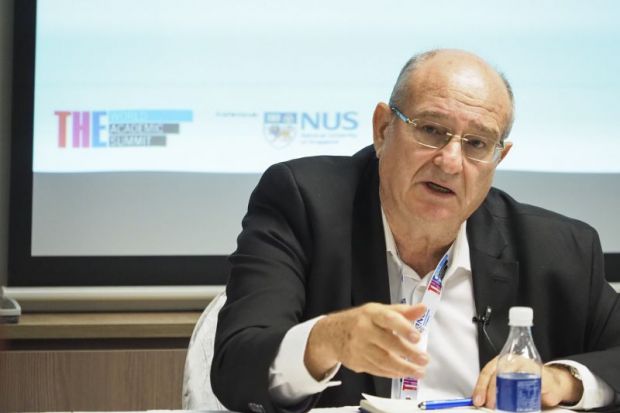Innovation zones can help to build mutually profitable collaborations between universities and industry, but making a success of such initiatives is complicated, according to sector leaders.
Times Higher Education’s World Academic Summit heard that the many necessary ingredients go beyond financial support and space for facilities to include a range of human factors including business alliances and student attitudes.
Peretz Lavie, who has opened start up-focused industry-academic ventures in both China and the US as president of Technion Israel Institute of Technology, said he recognised the very real challenge of such projects in Asia.
He told the summit, held in Singapore, of giving a lecture before 1,000 students in Japan and not having a single participant ask a question. By comparison, he said, “in Israel, someone raises their hand before I finish talking to say, ‘You don’t know what you’re talking about.’”
“You have to instil the entrepreneurial spirit in students who don’t have it,” Professor Lavie said.
And while may take time, such attitudes can be learned, said Jenny Dixon, deputy vice-chancellor of the University of Auckland. Professor Dixon described her excitement at hearing from Chinese students who come back to New Zealand after learning at her institution. Many have told her of taking the initiative to set up companies that trade between the two countries, she said.
“They take what they really like about New Zealand, and they set it up and run it from China,” Dixon said.
Bundhit Eua-arporn, the president of Chulalongkorn University, told of similar experiences in Thailand. His institution set up the Siam Innovation District in Bangkok, and confronted the usual challenges with getting space and money. Teaching students to collaborate and show persistence proved just as important, he said. “We need to have students who push things to the finish,” Professor Eua-arporn said.
Much has already changed in Asia, and the process doesn’t need to take long, Professor Lavie said. That’s becoming clear to Professor Lavie at his institution’s China venture, Guangdong Technion, which has been open for less than three years.
“We see changes in our Chinese students, and at the end of the year they are not the same as when they started,” Professor Lavie said.
And the interest is certainly there, Professor Lavie said. At the New York venture, which Technion runs with Cornell University and where tuition fees are $58,000 (£44,154) a year for two years, 85 per cent of the students are non-American.
Register to continue
Why register?
- Registration is free and only takes a moment
- Once registered, you can read 3 articles a month
- Sign up for our newsletter
Subscribe
Or subscribe for unlimited access to:
- Unlimited access to news, views, insights & reviews
- Digital editions
- Digital access to THE’s university and college rankings analysis
Already registered or a current subscriber? Login











